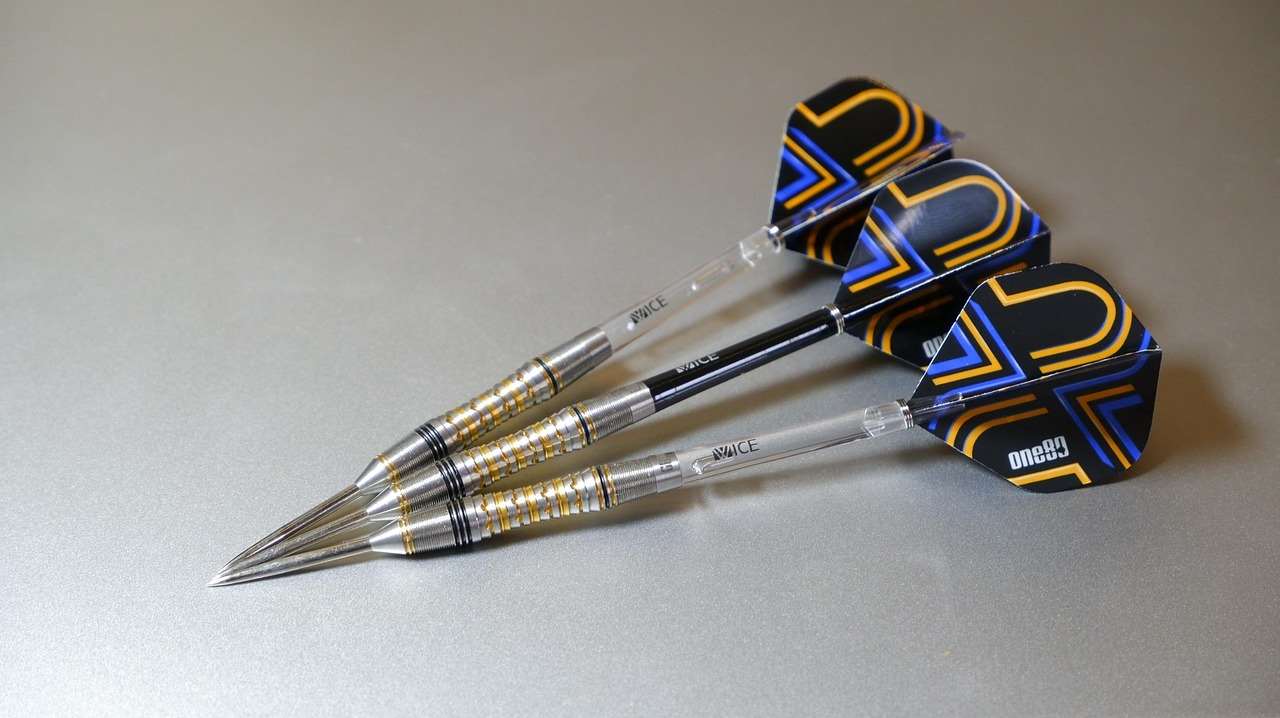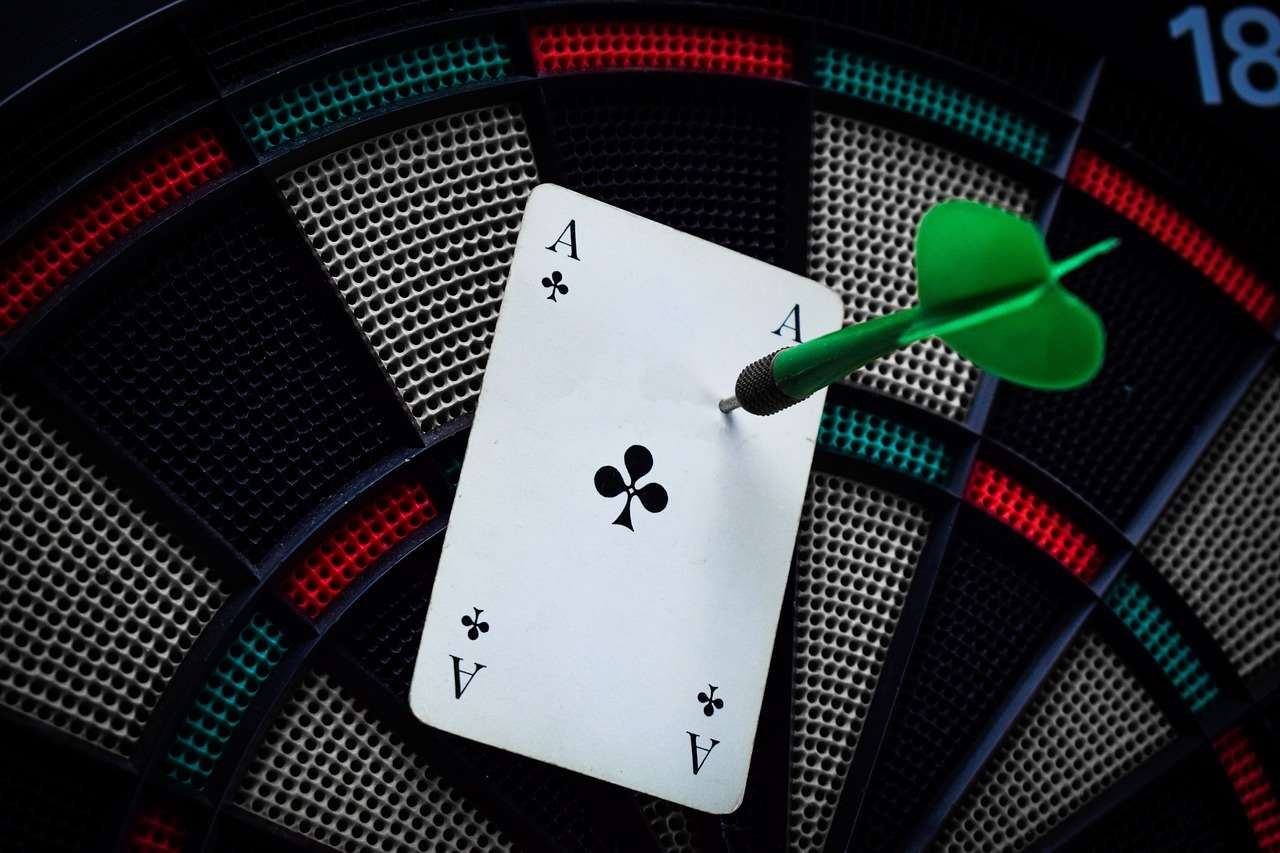The key to choosing practice games skill focus lies in first identifying the specific weaknesses in your game and then selecting drills or games that directly target those areas for improvement. This article explores various strategies for identifying those weaknesses, and then demonstrates how to find or adapt games to improve your overall abilities.
⚠️ Still Using Pen & Paper (or a Chalkboard)?! ⚠️
Step into the future! The Dart Counter App handles all the scoring, suggests checkouts, and tracks your stats automatically. It's easier than you think!
Try the Smart Dart Counter App FREE!Ready for an upgrade? Click above!
Identifying Your Weaknesses Before Choosing Practice Games Skill Focus
Before you even think about choosing practice games skill focus, you need a clear understanding of your current skill level and, more importantly, where you need to improve. Blindly playing games without a specific purpose is unlikely to yield significant results. It’s like trying to navigate without a map – you might eventually reach your destination, but it’ll take much longer and you’ll likely get lost along the way.
Here are several methods to effectively identify areas for improvement:
- Track Your Performance: Keep detailed records of your games, noting things like your averages, checkout percentages, and accuracy on specific numbers. Many apps are available that automate this process.
- Analyze Your Misses: Don’t just focus on what you hit; pay close attention to where your darts land when you miss. Are you consistently missing to the left, right, high, or low? This can indicate issues with your stance, grip, or release.
- Seek Feedback: Ask a more experienced player to watch you play and provide constructive criticism. A fresh pair of eyes can often spot flaws that you’re not even aware of.
- Video Analysis: Record yourself playing and then review the footage. This allows you to objectively assess your technique and identify any inconsistencies.
- Play Different Game Types: Trying Darts Variants Fun Games and other less familiar game types can reveal weaknesses you didn’t know you had.
Once you’ve gathered enough data and feedback, you should have a solid understanding of your strengths and weaknesses. This will form the basis for choosing practice games skill focus to elevate your performance.

Skill Areas to Focus On
Darts, like any sport, involves a range of skills. When choosing practice games skill focus, consider these key areas:
- Accuracy: Hitting the desired target consistently.
- Consistency: Maintaining accuracy over multiple throws and games.
- Checkout Ability: Efficiently finishing legs of darts, particularly when under pressure.
- Mental Toughness: Remaining calm and focused even when things aren’t going your way.
- Strategic Thinking: Making smart decisions about which numbers to target.
It’s unlikely that you’ll be equally strong in all of these areas. Choosing practice games skill focus requires identifying the areas where you’re weakest and then selecting drills and games that specifically target those weaknesses. Don’t neglect your strengths, but dedicate the majority of your practice time to improving your areas of concern.
Specific Practice Games and Drills for Different Skill Areas
Now that you know how to identify your weaknesses and the key skill areas to focus on, let’s look at some specific practice games and drills that can help you improve.
Improving Accuracy
Accuracy is fundamental to darts, so this should always be a primary concern. Here are some drills to help you hone your accuracy:
- Target Practice: Select a specific number (e.g., 20) and throw at it repeatedly, focusing on hitting the triple. Keep track of your success rate and try to improve it over time.
- Around the Clock: Start at 1 and work your way around the board, hitting each number in sequence. This is a great way to improve your accuracy on all numbers.
- Double Trouble: Focus on hitting doubles. Start with double 1 and work your way up to double 20, then the bullseye. Doubles are crucial for checkouts, so this is an important skill to develop.
Enhancing Consistency
Accuracy is important, but consistency is what separates good players from great ones. These games will improve your ability to replicate your throws:
- The “9-Dart Challenge”: Try to score as high as possible with 9 darts. This forces you to focus on hitting consistent scores.
- The “100-Dart Challenge”: Throw 100 darts at the 20 segment and record your score. Repeat this regularly to track your consistency over time.
- The “Round the Board, Three Darts”: Choose a target number, and try to hit it 3 times with one throw. This requires extremely precise repetition and control.

Mastering Checkout Ability
Checkout ability is often the difference between winning and losing. Being able to finish legs efficiently is a crucial skill. These drills will help you master your checkouts:
- Checkout Practice: Select a specific checkout (e.g., 40) and practice hitting it repeatedly. Focus on your setup routine and throw.
- Realistic Scenarios: Create realistic game scenarios where you’re left with a specific checkout. Practice hitting these checkouts under pressure.
- The “Big Out” Challenge: Practice checking out from high scores (e.g., 100, 120, 170). This will improve your ability to calculate and execute complex checkouts.
Strengthening Mental Toughness
Darts is a mental game as much as a physical one. Being able to stay calm and focused under pressure is essential. These techniques will help you develop your mental toughness:
- Practice Under Pressure: Simulate game-like conditions by introducing distractions or playing against a more skilled opponent.
- Visualization: Before you play, visualize yourself throwing well and hitting your targets.
- Positive Self-Talk: Replace negative thoughts with positive ones. Remind yourself of your strengths and past successes.
- Learn from Mistakes: Don’t dwell on your mistakes. Instead, analyze them and learn from them.

Developing Strategic Thinking
Strategic thinking involves making smart decisions about which numbers to target. This can be especially important in games like 501. Here are some tips to improve your strategic thinking:
- Study the Game: Learn about the different scoring possibilities and the best routes to take to finish a leg.
- Analyze Your Opponent: Pay attention to your opponent’s strengths and weaknesses. Try to exploit their weaknesses and avoid playing to their strengths.
- Plan Ahead: Think several moves ahead. Consider the consequences of each throw and choose the target that will give you the best chance of winning.
- Adapt to the Situation: Be willing to change your strategy if necessary. If your initial plan isn’t working, don’t be afraid to try something different.
Adapting Existing Games for Specific Skill Focus
Choosing practice games skill focus doesn’t always mean finding completely new games. You can often adapt existing games to target specific skills. For example, if you’re struggling with doubles, you could play a game of “Around the Clock” but only allow yourself to score by hitting doubles. Or if you want to improve your checkout ability, you could play a game of 501 but only allow yourself to checkout using specific combinations.
The key is to be creative and think about how you can modify the rules of existing games to make them more challenging and more focused on the skills you want to develop. Remember to keep it fun! Practice should be enjoyable, even when you’re working hard to improve. Consider exploring some forgotten pub dart games to add variety and fun to your practice sessions.
Tracking Progress and Adjusting Your Approach
It’s not enough to simply choose practice games skill focus and then forget about it. You need to track your progress and adjust your approach as needed. This means regularly assessing your skills and identifying any new weaknesses that have emerged. It also means being willing to change your practice routine if you’re not seeing the results you want.
Here are some tips for tracking your progress and adjusting your approach:
- Keep a Practice Journal: Record what you practiced, how long you practiced, and what results you achieved.
- Use Data to Guide Your Decisions: Analyze your performance data to identify areas where you’re still struggling and adjust your practice accordingly.
- Seek Feedback Regularly: Continue to ask for feedback from other players.
- Be Patient: Improvement takes time and effort. Don’t get discouraged if you don’t see results immediately.

The Importance of Rest and Recovery
While consistent practice is crucial, it’s equally important to prioritize rest and recovery. Overtraining can lead to fatigue, decreased performance, and even injuries. Make sure you’re getting enough sleep, eating a healthy diet, and taking regular breaks from practice. Consider techniques for stress reduction. Regular mental breaks are as important as physical rest.
Remember, darts is a marathon, not a sprint. By choosing practice games skill focus, tracking your progress, and prioritizing rest and recovery, you can gradually improve your skills and achieve your goals.
Explore the history of darts games uk for additional context and inspiration.
Finding the Right Balance
Finding the right balance between focused practice and casual play is key to enjoying the game and continually improving. While choosing practice games skill focus is essential for addressing specific weaknesses, it’s also important to simply enjoy playing darts. Don’t let practice become a chore. Mix in some casual games with friends or family to keep things fun and engaging. Remember, a love for the game is the foundation for continued growth and success. And it might be fun to explore obscure dartboard games list as well.

Conclusion
Choosing practice games skill focus is a critical step in improving your darts game. By identifying your weaknesses, selecting games and drills that target those weaknesses, tracking your progress, and adjusting your approach as needed, you can systematically enhance your skills and achieve your goals. Remember to prioritize rest and recovery, find the right balance between focused practice and casual play, and above all, enjoy the game! So, take the strategies and advice presented here, identify your key areas for improvement, and start tailoring your practice today! Your pathway to darting success starts now. Get out there, practice smart, and elevate your game.
Hi, I’m Dieter, and I created Dartcounter (Dartcounterapp.com). My motivation wasn’t being a darts expert – quite the opposite! When I first started playing, I loved the game but found keeping accurate scores and tracking stats difficult and distracting.
I figured I couldn’t be the only one struggling with this. So, I decided to build a solution: an easy-to-use application that everyone, no matter their experience level, could use to manage scoring effortlessly.
My goal for Dartcounter was simple: let the app handle the numbers – the scoring, the averages, the stats, even checkout suggestions – so players could focus purely on their throw and enjoying the game. It began as a way to solve my own beginner’s problem, and I’m thrilled it has grown into a helpful tool for the wider darts community.